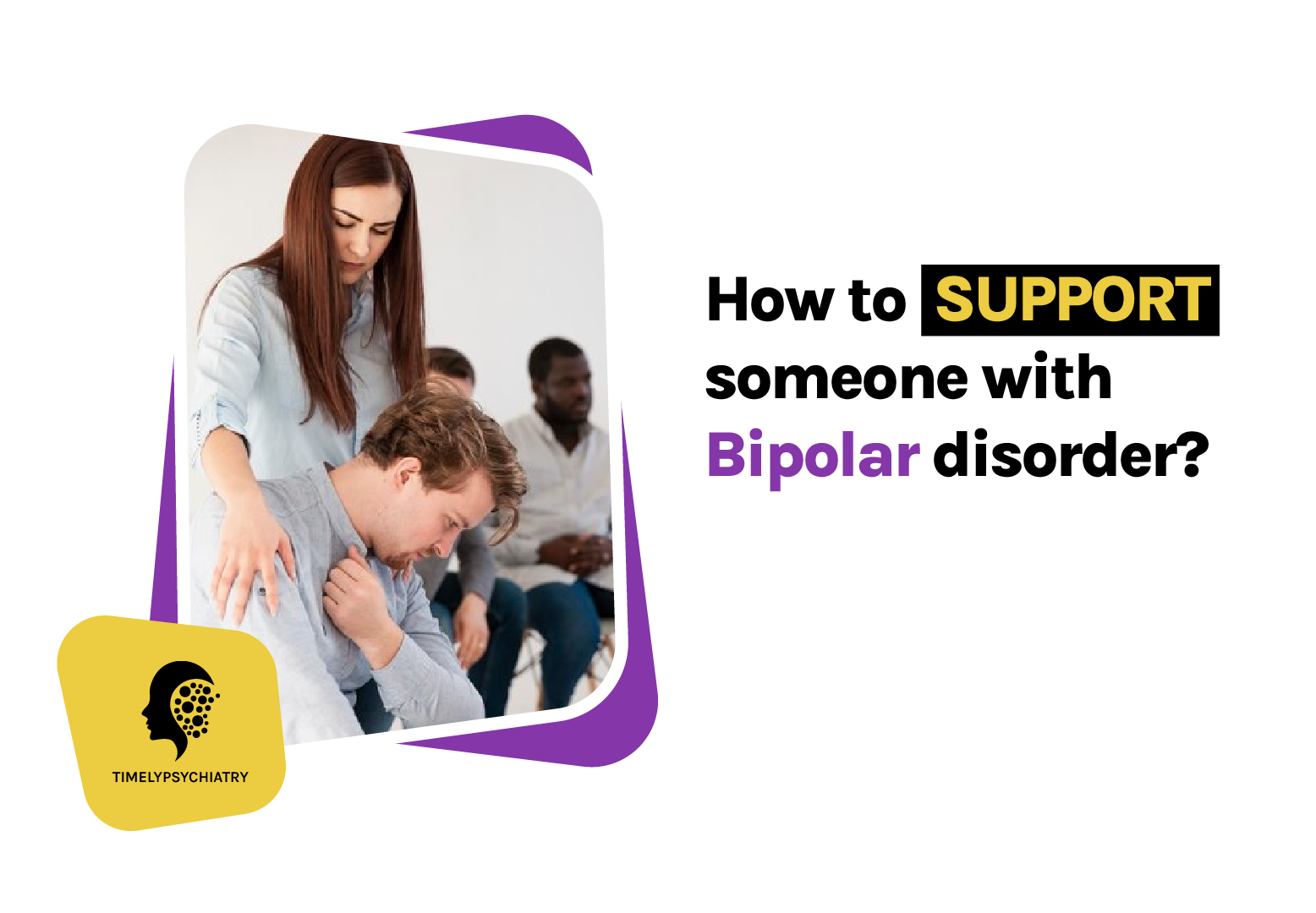Living with bipolar disorder is a journey that can be full of highs and lows, and when a friend or loved one is navigating these waters, knowing how to offer support can make all the difference.
In this blog post, we’ll walk through ways to help someone with bipolar disorder, making their path a bit easier to walk.
Understand Bipolar Disorder
If you want to help, you first need to know what bipolar disorder is. It’s a mental health disorder. People with it have strong mood shifts.
They feel extreme emotions highs (mania or hypomania) and intense lows (depression).
What the Highs and Lows Mean
When someone you care about experiences a manic phase, they can become energetic, make grand plans, or act without thinking.
Yet, when they’re in a depressive phase, they might feel sad, indifferent, or lose all hope.
These mood shifts can mess up sleep, drain energy, impair judgment, change behavior, and cloud clear thinking.
Getting these signs can make you connect better with what your relative or buddy goes through. It’s not merely “showing mood swings;” it’s a tricky and tough condition.
How to Support Someone with Bipolar Disorder?
1. Be There to Listen
Listening: It’s simple, but mightily effective. If you know someone with bipolar disorder, your listening can help.
No judgements, just an open ear. It offers huge comfort to someone facing the rollercoaster ride of this condition.
Listening Tips:
- Stay Calm: At times, simply being there, giving a quiet space, can be helpful.
- No Criticism: Keep from judging their emotions or actions.
- Communicate: Assure them that you’re always ready to listen when they want to talk.
2. Recognize the Warning Signs
Helping someone means noticing signs. Be familiar with hinting signals that may suggest a mood change in your dear one.
Manic Phase Signs:
- Reduced need for sleep
- Excessive energy or agitation
- Rush of ideas or talking faster than usual
Depressive Phase Signs:
- Loss of interest in activities
- Constant fatigue
- Withdrawal from social interaction
Spotting these signs helps you give better assistance. Possibly, you may even evade a full-blown mood episode.
3. Encourage Treatment and Support Their Efforts
Suggest professional treatment and be supportive. It’s vital for individuals having bipolar disorder to get expert care. Let your loved one know that getting help is a power signal, not a flaw.
Treatment Options:
- Medication : Usually key in handling bipolar disorder.
- Therapy: Techniques like cognitive-behavioral therapy give skills for managing the condition.
- Support Groups: They bring people who understand life with bipolar disorder together.
4. Help with the Routine
People living with bipolar disorder can find huge value in a steady everyday pattern.
You can lend a hand by aiding them to adhere to a regimen that includes sleep, food intake, and activities.
Routine Tips:
- Suggest writing down a daily plan
- Gently remind them of their routine
- Offer to join them in regular activities or exercise
5. Provide Practical Help
When a person with bipolar disorder goes through mood shifts, even daily chores can turn challenging. Helpful assistance can lighten their load.
Practical Help Can Include:
- Preparing meals
- Helping with household chores
- Running errands together
6. Take Care of Yourself
Helping a person with mental health struggles can be tough emotionally. Don’t forget to nurture your own emotions and mental state. It’s essential for you to keep giving solid support.
Self-Care Strategies:
- Set boundaries to avoid burnout
- Seek support from others in similar situations
- Take time for your own rest and relaxation
7. Your Role in Crisis Situations
In a crisis, safety is a top priority. If your loved one talks about self-harm or suicide then take it seriously.
Steps to Take:
- Stay calm and listen.
- Encourage immediate professional help.
- In urgent situations, call emergency services.
8. Stay Hopeful and Positive
Positivity is contagious. Rejoice in minor wins, staying hopeful for what’s ahead.
The cheerful perspective you hold can inspire your close one to stay driven on their road to equilibrium.
Conclusion: Timely Psychiatry
To assist a person with bipolar disorder, it’s not compulsory to know everything. Your presence, a ready hand to help, encouragement, and directing them to expert care matter most.
If managing bipolar disorder feels overwhelming for you or someone you care about, remember that professional help is within reach.
At Timely Psychiatry, we provide the necessary guidance, support, and treatments to manage this condition.
Feel invited to get in touch today to explore our range of services.
Being supportive to someone with bipolar disorder involves patience, empathy, and kindness.
With an efficient support system, inclusive of professional care from resources like Timely Psychiatry, anyone with bipolar disorder can enjoy meaningful lives.
FAQs
What is high functioning bipolar disorder?
People with high functioning bipolar disorder manage the symptoms effectively while upholding personal and professional responsibilities.
What does nursing care for bipolar disorder involve?
Nursing care for bipolar disorder includes:
- Monitoring symptoms
- Administering medication
- Providing education and emotional support to patients and their families
What are some beneficial activities for bipolar disorder?
Beneficial activities for people with bipolar disorder include”
- Exercise
- Mindfulness meditation
- Creative hobbies
- Structured routines that promote stability
Is recovering from bipolar depression possible?
Recovery from bipolar depression is achievable through appropriate treatment and condition management.

